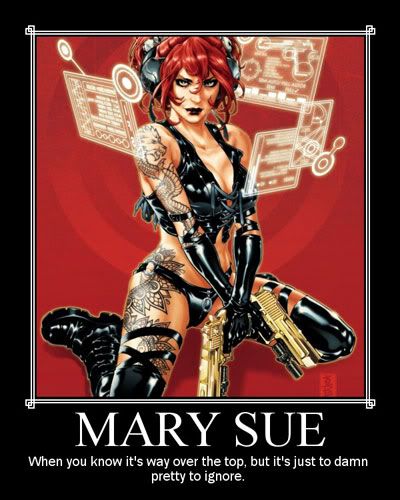
Yesterday I talked about the constraints of an established universe and what to do if you want to avoid raising the ire of the fan community. However, keep in mind that this is merely advice for most fan works. Sometimes you want to break the established constructs for one reason or another. That’s fine. Nothing new is created without something old being at least partially destroyed.
This is done a lot in fanfiction. A lot of Mary Sues are born out of a writer’s desire to break a character’s norms, have them develop in a different way. Most of the time, that ‘different way’ is falling in love with/universally praising/getting in a situation in which they can only be saved by the aforementioned Sue. On the one hand, this isn’t a bad way to acquaint oneself with writing within the constraints of a given established universe, or more than one if you’re doing a crossover. On the other, be prepared for even more flak than usual depending on which direction your Sue takes you.
I’m not saying all fan fiction has Sues or author insertion characters. The crossover epic Unity keeps the characters from both established universes pretty consistent while playing with reader expectations. If pressed to recommend some “good” fan fiction, that’d be it.
And then there are parodies.

A good example of using lore for the purpose of parody is a YouTube series called The GMod Idiot Box, created by some guy calling himself Das Bo Schitt. While there’s some pretty screwball comedy that goes on within the episodes, he actually goes to some length describing how his characters came to be. He couples familiar sights and sounds from popular Valve games with well-chosen music and some classic comedy gags. I can’t say everybody would enjoy the videos, as some of the comedy borders on the juvenile, but some of it does get me rolling on the floor laughing.
Which says a lot about me, I guess.
Anyway, those are a couple ways a writer or artist can use established lore without staying entirely constrained within its mores. What are some others?





